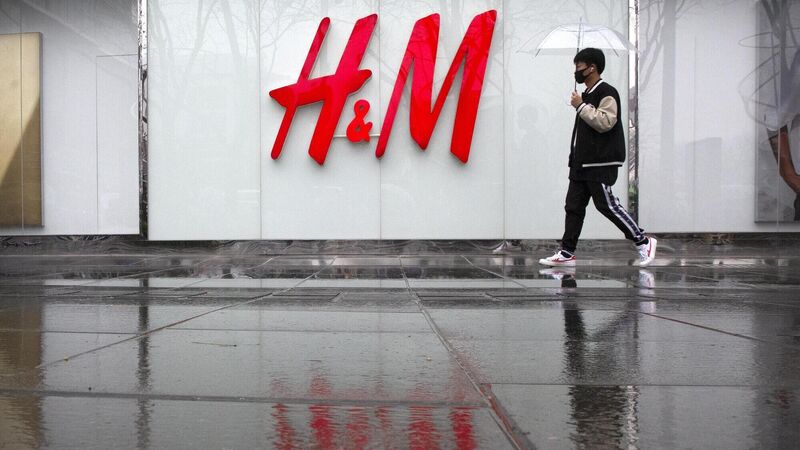John Whelan: Ireland may be losing its grip on selling food into China

In March, H&M faced a social media campaign in China over complaints of abuses in the Xinjiang region. Picture: AP
Driven by consumer spending and foreign trade, China’s economy surged in the first quarter of the year as the huge economy bounced back from the effects of the pandemic and provided a much-needed boost to exporting companies in many countries.
However, Ireland’s traders showed little sign of benefiting from this rapid growth, unlike other European countries.











